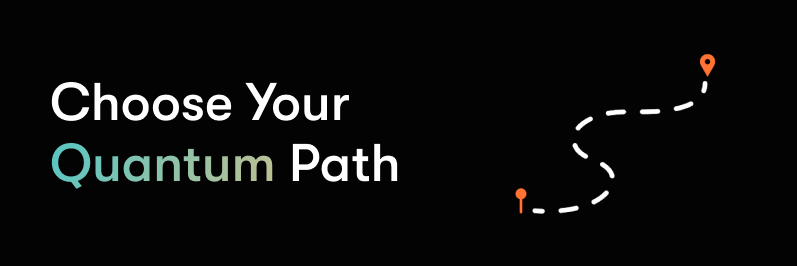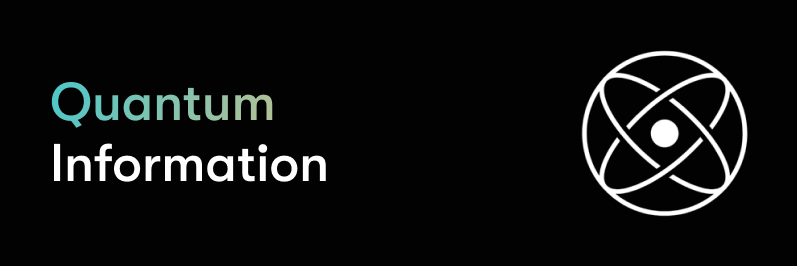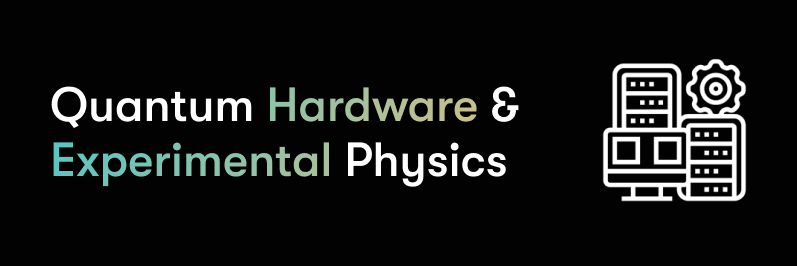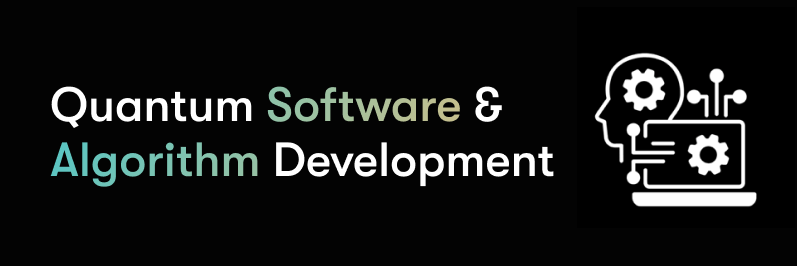Which Major to choose for a career in Quantum Computing?
Are you considering a quantum computing career but unsure which academic path to choose? Quantum computing is a wide-ranging field that touches on many different areas, from quantum hardware and algorithms to error correction and quantum information theory. In this article, we will guide you through key questions to help you choose your major and start your career in Quantum Computing.

What’s the best fit for you:
Quantum Information Theory, Quantum Hardware & Experimental Physics or Quantum Software Development?
If you’re intrigued by the theoretical side of things, like developing quantum algorithms or optimizing quantum systems, you might want to dive into quantum information theory. This area often requires a solid background in physics and involves complex mathematical models and simulations.
If you’re more hands-on and fascinated by building and testing quantum hardware, the hardware or experimentalist path could be for you. This field involves engineering, microfabrication, and a lot of lab work, making it ideal for those with a knack for practical and technical skills.
Or maybe you’re into coding and creating software that runs on quantum machines? Then the software side of quantum computing might be your calling. This path involves programming, scientific computing, and developing tools and applications, best suited for those with a computer science background.
In the following, we’ll break down the three different sectors of Quantum Information Theory, Quantum Hardware & Experimental Physics as well as Quantum Software and Algorithm Development. We further explore which academic programs can set you up for success in each area. By understanding these pathways, you can make a more informed decision about how to shape your future in this exciting field.
1. Quantum Information Theory

Why choose Quantum Information Theory as a Major?
It’s ideal for those who are passionate about exploring the theoretical foundations of modern technology and are intrigued by the intersection of quantum mechanics and information theory.
Quantum Information Theory (QIT) is a field that merges quantum mechanics with information theory to understand and utilize the principles of quantum systems for processing and transmitting information. This overview will cover the fundamental concepts, key protocols, and significant advancements in the field.
What will you do with a career in Quantum Information Theory?
You’ll spend your days developing new ways to use quantum computers to solve problems that are difficult for classical computers. This involves creating new algorithms, understanding the limitations of quantum systems, and figuring out how to prevent errors in quantum computations.
Recommended Majors:
- Physics: At the heart of quantum theory is, of course, physics. A degree in physics will give you a solid foundation in understanding the concepts of quantum mechanics. It’s a great place to start if you’re keen on understanding the theoretical side of things.
- Mathematics: Quantum information theory relies heavily on complex mathematical structures. If you enjoy solving abstract problems and want to work on quantum algorithms, a mathematics degree will give you the tools you need to manipulate the intricate equations that drive quantum computing.
- Computer Science: While traditional computer science deals with classical computers, it’s an essential starting point for anyone looking to dive into quantum computing. Learning how classical algorithms work will help you understand the revolutionary differences that quantum algorithms introduce.
Recommended Master’s Pathways for Quantum Information Theory:
In our last article, we mentioned some institutes in the DACH region that offer quantum programs at the Master’s level. For Quantum Information Theory, some renowned institutes include ETH Zurich, EPFL, University of Vienna, Technical University of Munich (TUM), and University of Innsbruck. For more information click here.
Specializing in Quantum Information Theory offers diverse career paths across several fields. In academia, opportunities exist for advancing both theoretical and practical aspects of quantum information, contributing to research in cryptography, quantum computing algorithms, and quantum communications. This work can be pursued in universities, research institutes, and national laboratories dedicated to quantum technology.
Wondering how this plays out in everyday work life?
In the field of Quantum Key Distribution (QKD), researchers and engineers are focused on advancing secure communication systems grounded in the principles of quantum mechanics. The team of Terra Quantum, for example, announced in 2023 to have sent quantum-encrypted data through a 1,032-kilometer fiber-optic network at more than 10,000 times previous speed record. Find out more here. Another prominent player is the Zeilinger Group in Vienna, Austria, led by Nobel laureate Anton Zeilinger. This group is developing innovative applications of quantum physics in quantum communication techology to ensure unbreakable security in data transmission. To learn more about their work, visit the Zeilinger Group’s research page.
2. Quantum Hardware and Experimental Physics

Why choose Quantum Quantum Hardware and Experimental Physics as a Major?
Those who are passionate about building and experimenting with physical systems to implement quantum mechanics in real-world devices.
Quantum Hardware and Experimental Physics is the field where theory meets hands-on work. It involves constructing and optimizing quantum systems, such as quantum computers and sensors, through direct experimentation and engineering. This overview will cover the primary hardware platforms, experimental techniques, and technological advancements in the field.
What will you do with a career in Quantum Hardware and Experimental Physics?
Your tasks will involve designing and building quantum hardware, from quantum processors to quantum communication devices. This involves working with systems like superconducting qubits, trapped ions, or photonic circuits, and exploring how to control and manipulate quantum states for practical applications. A deep understanding of quantum mechanics, along with expertise in experimental methods, is essential to push the boundaries of quantum technologies.
You may also have the opportunity to work on hybrid setups that merge classical and quantum resources, transforming today’s data centers and IT infrastructure. These setups, like those being developed by the team at QMware, accelerate early advancements in quantum applications by leveraging the strengths of both worlds. Read more about a collaboration between Oracle, NVIDIA and QMware here. This approach empowers you to contribute to developing practical solutions that push the frontiers of quantum and classical computing integration.
Recommended Majors:
- Physics: A background in experimental physics, with a focus on condensed matter or atomic physics, is valuable for working with quantum systems. Theoretical knowledge in quantum mechanics combined with experimental skills is critical for understanding the behaviour of quantum particles in different environments. Physicists are often at the forefront of developing new quantum algorithms and testing the feasibility of implementing quantum systems using various platforms such as superconducting circuits, ion traps, or photonic systems.
- Materials Science: Knowledge of materials properties and fabrication techniques can be beneficial for developing new quantum materials. Materials science plays a pivotal role in quantum hardware, as the performance of quantum devices depends heavily on the materials used to construct them. This major focuses on the properties of materials at the atomic and molecular level, particularly in areas like superconductivity, semiconductor physics, and nanotechnology. Understanding fabrication techniques such as thin-film deposition, nanofabrication, and cryogenics will enable you to design materials that can sustain quantum states over long periods.
Recommended Master’s Pathways for Quantum Information Theory:
Several top institutes in the DACH region offer excellent master’s programs. In Germany, the Technical University of Munich (TUM) provides a Master of Science in Quantum Science & Technology, Ludwig-Maximilians-Universität München and the University of Stuttgart offer a Master of Science in Physics with a focus on Quantum Technologies. In Austria, the University of Vienna has a Master of Science in Quantum Physics. To learn more details refer to our first article of the Quantum Career series.
Wondering how this plays out in everyday work life?
In the realm of quantum hardware, various approaches are being actively researched and developed. For instance, companies like AQT (Alpine Quantum Technologies) are at the focusing on building scalable quantum processors using trapped-ion technology. Another leading company is our partner QuEra who are solving complex problems by mapping problems into the flexible programmable geometry of 256 neutral atoms. Microsoft on the other hand is attempting to build qubits that will be less than 10 microns on a side, so that more than one million can fit on a single chip, enabling a single-module machine of practical size.
3. Quantum Software and Algorithm Development

Why choose Quantum Software and Algorithm Development as a Major?
If your interests lie in creating software applications and algorithms that utilize the principles of quantum computers, then this might be the right path for you.
What will you do with a career in Quantum Software and Algorithm Development?:
In Quantum Software and Algorithm Development, the focus is on designing and implementing algorithms that utilize the computational power of quantum systems. This requires a deep understanding of both quantum mechanics and classical computer science. The tasks involve creating quantum algorithms that solve specific problems more efficiently than classical methods, such as quantum machine learning algorithms, which enhance AI and data processing. Additionally, you’ll work with quantum programming languages like Qiskit or Cirq, program quantum circuits to execute tasks, and develop error mitigation strategies to improve quantum computations. Hybrid quantum-classical algorithms, such as variational quantum algorithms (VQA), are also a key area, combining the strengths of quantum and classical systems for applications in fields like chemistry, optimization, and machine learning.
Recommended Majors:
- Physics: While quantum software development focuses on programming, a solid grasp of quantum mechanics is very important to understand how quantum computers differ from classical systems. A physics major provides insights into the behaviour of qubits, entanglement, superposition, and quantum gates—concepts that inform quantum algorithm design. Familiarity with quantum theory also helps bridge the gap between theoretical ideas and their practical implementation on quantum hardware.
- Mathematics: A deep background in mathematics, particularly in linear algebra, group theory, probability, and numerical methods, is essential for quantum software development. Linear algebra forms the backbone of quantum mechanics, with concepts like vector spaces, eigenvalues, and matrix operations being fundamental to understanding how qubits operate and interact. Mathematical rigour helps in the design and analysis of quantum algorithms and protocols, which require precision and abstract thinking.
- Computer Science: Another option is to opt for computer science but specialize in a quantum program within your degree. You might not learn quantum mechanics in depth but, you will be taught a strong foundation in programming, data structures, algorithms, and complexity theory to write quantum programs and optimize quantum circuits. Knowledge of parallel computing and distributed systems will also help when exploring how classical and quantum systems can work together in hybrid quantum-classical algorithms.
Wondering how this plays out in everyday work life?
As quantum hardware advances, the demand for skilled quantum software developers is increasing. Two prominent players in this field, Terra Quantum and QuEra, are focusing on developing practical applications and addressing real-world challenges. One of many examples is the development of a groundbreaking hybrid quantum neural network (HQNN) for drug response prediction. This innovative approach combines the power of quantum computing with classical neural networks to enhance the accuracy and efficiency of drug discovery processes. QuEra which is partnering with QMware has developed algorithms that can be applied to solve complex optimization problems, such as those found in logistics, finance, and machine learning.
We hope this guide helps clarify your options and inspires you to pursue your passion in quantum computing. For further details on specific programs and career opportunities, stay tuned to our series and continue exploring the exciting world of quantum technology.
